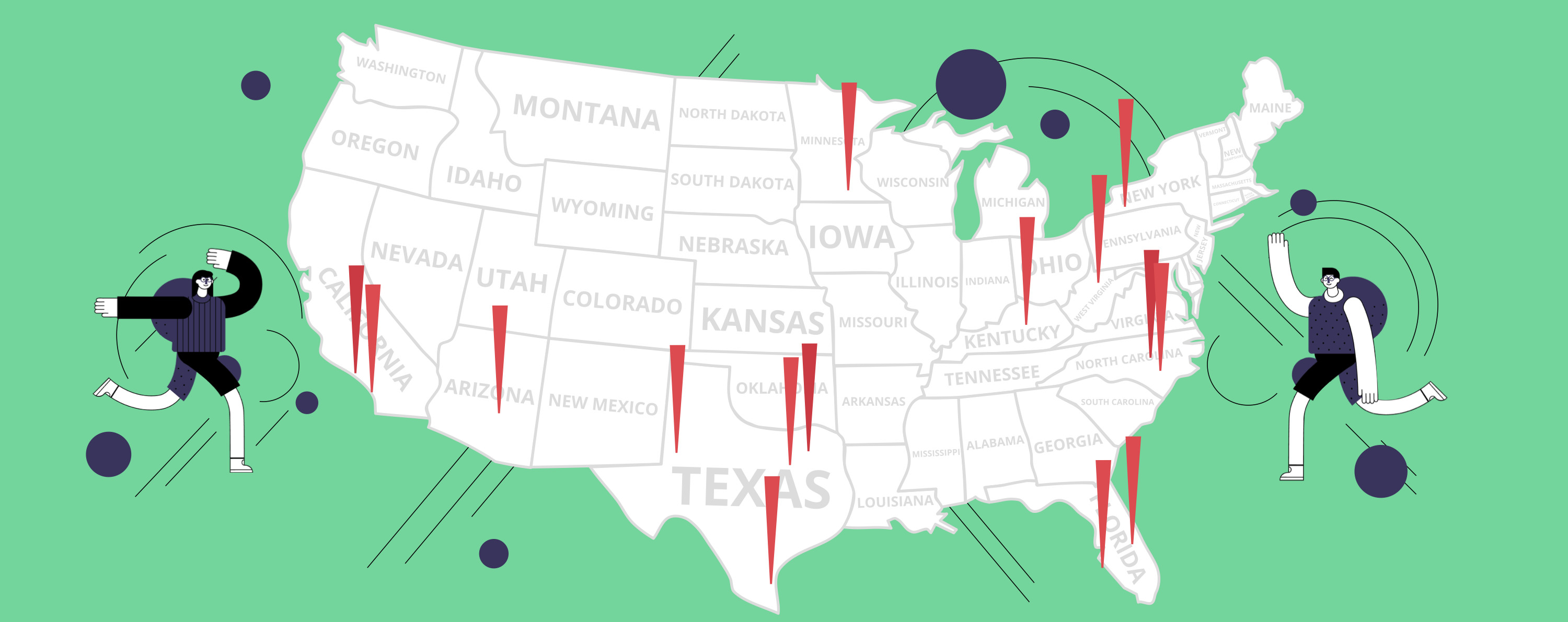Best Cities to Start a Business in the US

Share this article:
Editor’s note: Lantern by SoFi seeks to provide content that is objective, independent and accurate. Writers are separate from our business operation and do not receive direct compensation from advertisers or partners. Read more about our Editorial Guidelines and How We Make Money.
An influx of talent that’s eager to find new work Increasing ability for some to work online or in digital spaces Emerging consumer needs that your business could satisfy The opportunity to vet and pick an amazing location for your business
Walkability Cost of living Median age Cost of office space
Average household income Number of locally owned businesses Employment rates Percentage change in high propensity business applications (HPBAs) Time in business*
Monthly sales*
1. Corpus Christi, TX

2. Lubbock, TX

3. Arlington, TX

4. Buffalo, NY

5. Plano, TX

6. Irvine, CA

7. Durham, NC

8. Tampa, FL

9. Pittsburgh, PA

10. Orlando, FL

11. Raleigh, NC

12. Minneapolis, MN

13. Cincinnati, OH

14. Anaheim, CA

15. Gilbert, AZ

Ready to Start Your Business?
Methodology
F = 0 points D- = 1 point D = 2 points
D+ = 3 points C- = 4 points C = 5 points C+ = 6 points B- = 7 points
B = 8 points B+ = 9 points A-, A, A+ = 10 points
Median age 25 - 34 = 10 points
Every one-point deviation below age 25 or above age 34 subtracted 1 point. For example, a city with a median age of 38 would receive 6 points
Type of space needed: office, retail, or restaurant Number of employees: 10 (which equaled 1250 to 4000 sq. ft. of space)
$0 – $5 = 10 points $6 – $10 = 9 points $11 – $15 = 8 points $16 - $20 = 7 points
$21 - $25 = 6 points $26 – $30 = 5 points $31 – $35 = 4 points $36 – $40 = 3 points $41 - $45 = 2 points
$45 - $50 = 1 point $51+ = 0 points
F = 0 points D- = 1 point D = 2 points
D+ = 3 points C- = 4 points C = 5 points C+ = 6 points B- = 7 points
B = 8 points B+ = 9 points A-, A, A+ = 10 points
Those from a corporate entity
Those indicating they are hiring employees, purchasing a business, or changing organization type
Those providing first-wages paid dates
Those that have a NAICS industry code in manufacturing, retail stores, healthcare, or restaurant/food service
6 – 10 = 9 points 11 – 15 = 8 points 16 – 20 = 7 points
21 – 25 = 6 points 26 – 30 = 5 points 31 – 35 = 4 points 36 – 40 = 3 points 41 – 45 = 2 points
46 – 50 = 1 point
6 – 10 = 9 points 11 – 15 = 8 points
16 – 20 = 7 points 21 – 25 = 6 points 26 – 30 = 5 points 31 – 35 = 4 points 36 – 40 = 3 points
41 – 45 = 2 points 46 – 50 = 1 point
Fair Use Statement
SOLC20050
About the Author
Lantern is a product comparison site that makes it easy for individuals to shop for products and compare offers with top lenders. Lantern is owned and operated by SoFi Lending Corp., the digital personal finance company that has helped over one million people get their money right.
Share this article: